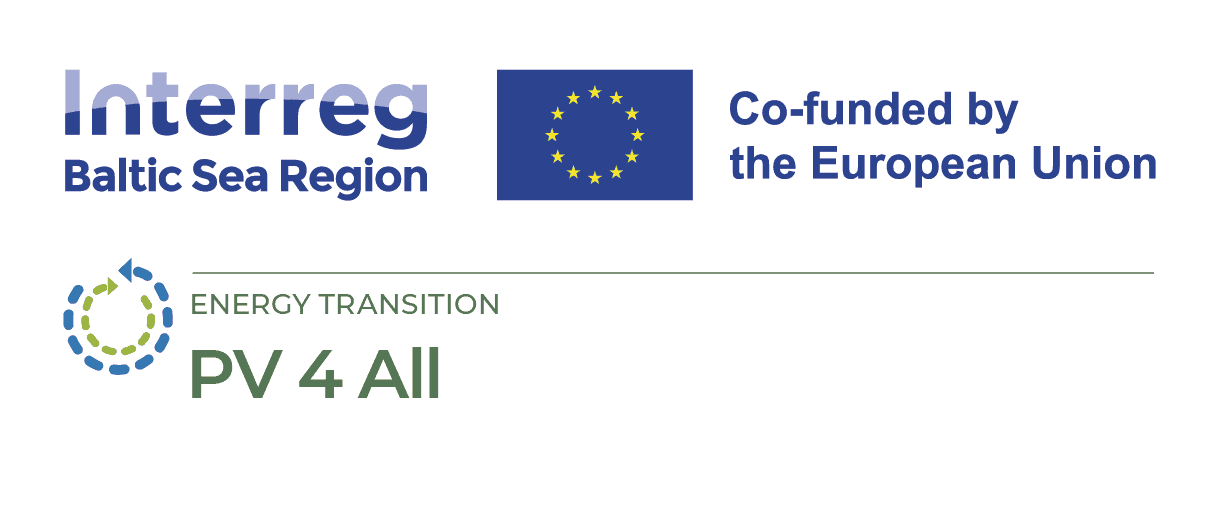
PV4All-Webinar on the use of Balcony Plug-In PVs in Lithuania
21 March 2024
During the webinar, the PV4All project was briefly presented. The use of mini plug-in PVs up to 800W for balconies and facades of multi-family houses was presented from different perspectives. The main topics presented were:
- What are balcony PVs, technical aspects, regulation;
- Economic aspects of investment;
- Testing of modules with regard to use them for balcony PVs;
- Buildings renovation, mini plug-ins and attitude of architects;
- Attitude of ESO (Energy Distribution Operator).
The webinar was attended by 93 participants (from 116 registrations), including municipalities and local authorities, energy companies and developers, several district heating companies, electricity suppliers, national authorities, industry associations, the academic community and interested individual consumers.
Good examples from Germany and Austria inspired private initiatives in Lithuania. Such mini plug-and-play systems were legitimised in Lithuania in 2023. Permission on construction of such PVs is preferred (still not quite clear).
Connection is easy, takes 3 working days, no other documents are required except technical documentation of PV modules and microinverters, which should be provided to the energy distribution company. The system should not exceed 800 W. Conservative assumptions show that payback currently is a little over 5 years (without subsidies), however, changes in support schemes, electricity pricing, capital costs, O&M costs may change the payback in the future.
Certified products (panels, inverters) must comply with the essential requirements of European standards on health, safety in use and environmental protection (CE marking). Testing of modules (available on the Lithuanian market) was performed in 2019 and the results show that with the total number of tested modules – 6515 (96 types, 29 producers), the share of modules with lower PMAX value than declared makes 25.10%. Although the overall quality is not bad, it is advisable to carry out tests when acquiring larger parties of such installations.
Regarding the use of mini-plug-in PVs in the renovation process of multi-family houses, there are several issues that still make this problematic, such as legislation and practice are still in the process of being formed; the roofs and facades are common property of the residents and it is difficult to make joint decisions; rather negative experience in issuing technical requirements for PVs. Besides, outdated electric installation in old houses allow capacities of 3 kW per apartment. Last but not least: architects consider that facades are owned “not by houseowners, but by architects“, and will never agree on single systems of various types.
Energy Distribution Operator (ESO) notify that there is an increasing number of cases where customers are installing more than 800 W of installed generating capacity, but are using the simplified process of connecting to the grid as in case of up to 800 W. So far ESO has been penalizing such customers for exceeding the allowed generation capacity in the usual way but starting to consider more serious measures to manage such overruns.





